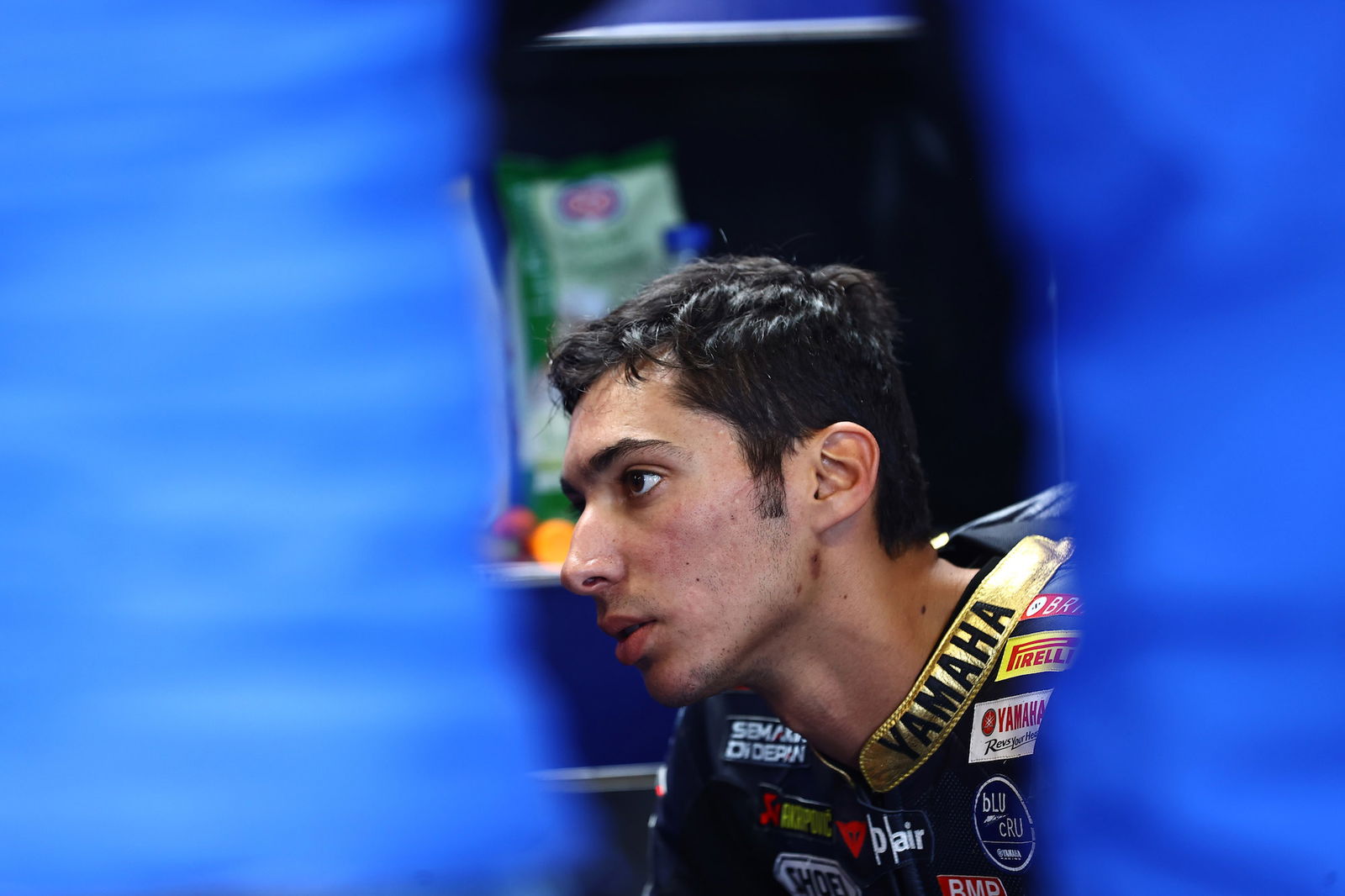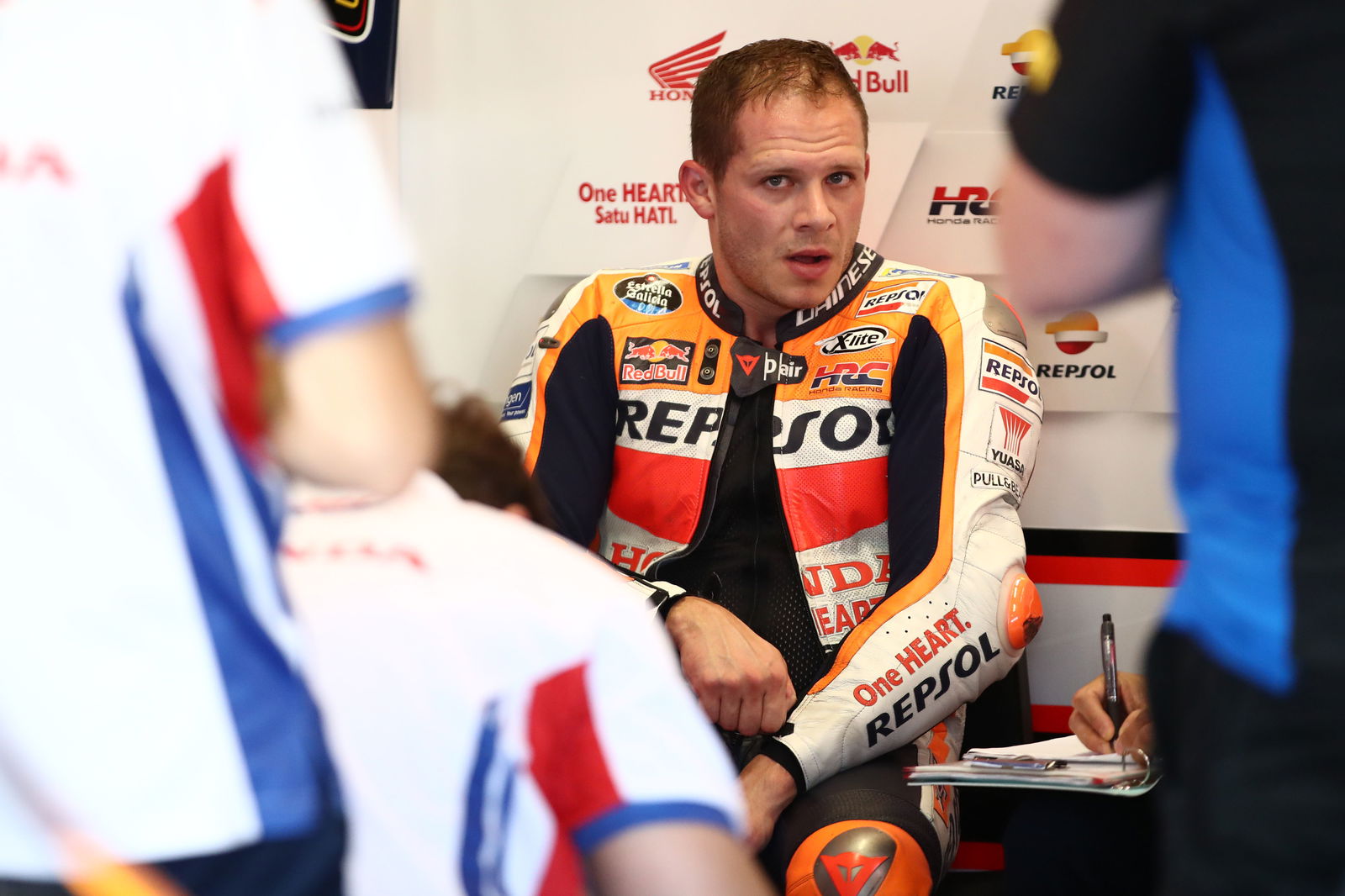Aprilia files patent for race suit aerodynamics, could use them in MotoGP?
A new era of aerodynamics in MotoGP could be on the way thanks to Aprilia, which has filed patents for a race suit with aerodynamic attachments.

Aprilia is reportedly preparing a new race suit, with aerodynamic modifications, seemingly aimed at MotoGP.
Downforce-generating aerodynamics have become a vital part of MotoGP racing in the past eight years, since Gigi Dall’Igna went to Ducati and stuck some winglets on the side of the Desmosedici GP15.
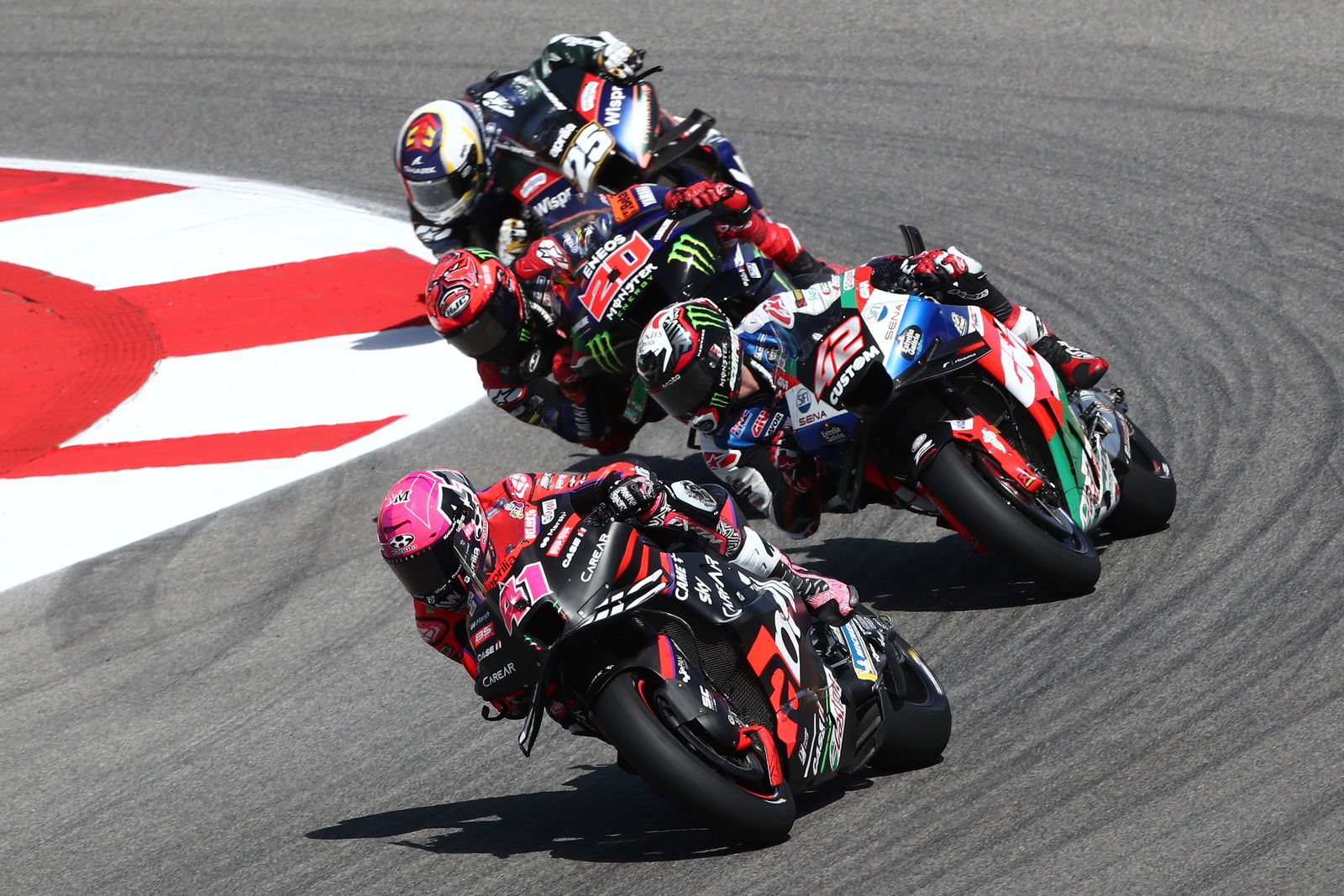
By now, the aerodynamics of MotoGP bikes are much more sophisticated, and while Ducati remain at the forefront of airflow manipulation, Aprilia are not far behind their compatriot manufacturer.
Back in 2018, Ducati began testing with rear-mounted aerodynamics, to try to generate rear downforce in order to balance the ever-increasing front aerodynamic load. It did not really work then, but, by the British Grand Prix of 2022, Ducati had figured out a way to beneficially generate rear downforce with the ‘stegosaurus’ wings. KTM has also found rear downforce for 2023, and Aprilia has tried its own solutions, although has not raced them, like Yamaha.
In car racing, aerodynamics are relatively simple in comparison to motorcycles, because everything stays in-place, and the platform remains flat. In motorcycles, the platform moves, and there is a rider in the way that changes the way the air flows.
To be able to maximise the efficiency of rear aerodynamic components on a motorcycle, it is necessary to optimise the shape of the components in front of those components in order to direct as much air as possible to them.
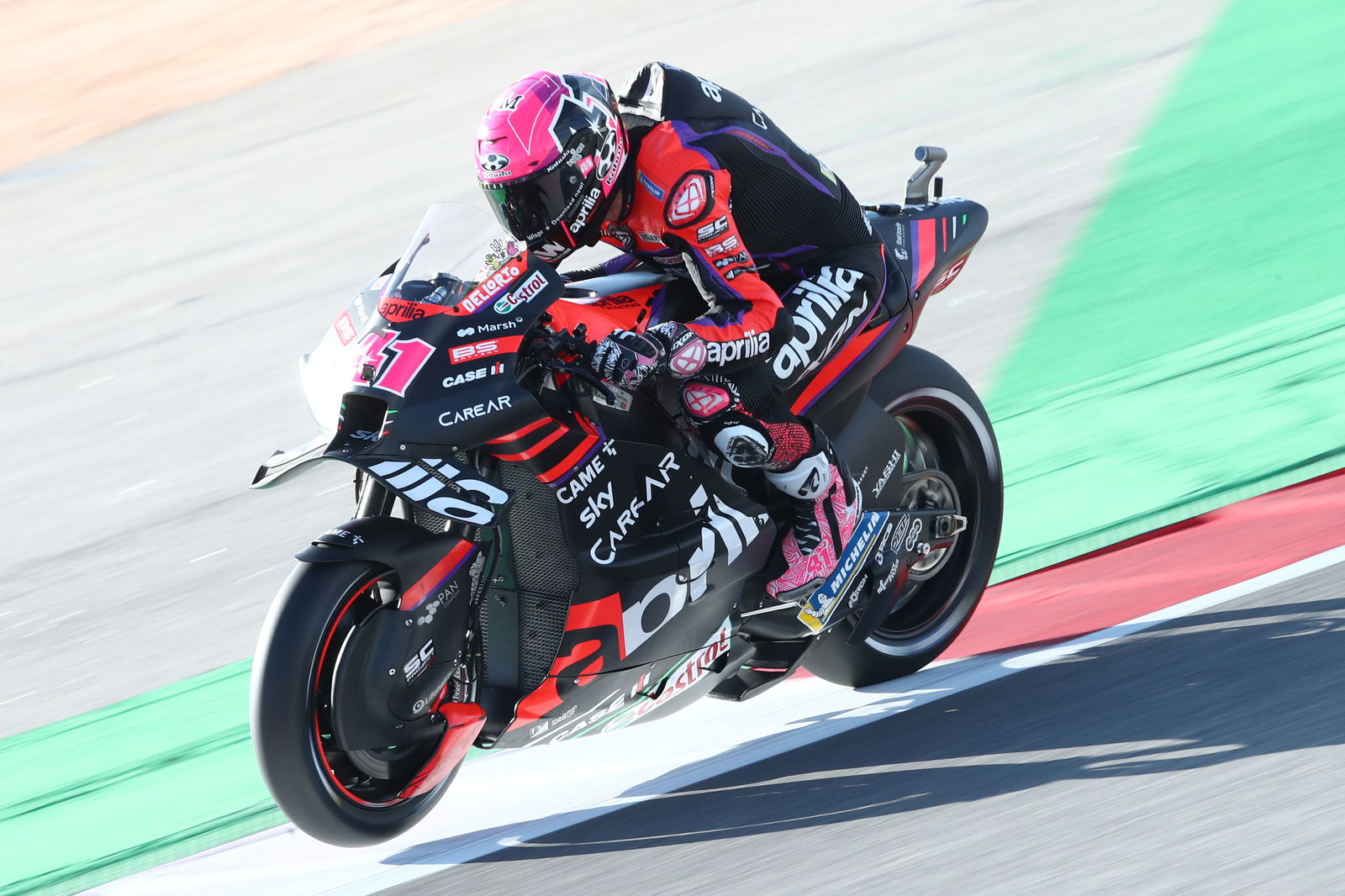
Unfortunately for the engineers, one of these components is the rider, and now - perhaps more than ever - the rider is a huge aerodynamic hurdle. Not only does the rider sit between the front aerodynamics and the rear aerodynamics, but they also move, creating inconsistent airflow patterns.
Additionally, now two riders have the same dimensions or proportions, which makes designing aerodynamics which sit behind the rider more complicated, because one rider’s dimensions will be more aerodynamically beneficial than another’s. Further still, a rider’s body position and riding style creates further complications. To take Aprilia’s case, Aleix Espargaro rides in a far different position to Maverick Vinales. In fact, Espargaro rides in a different position in left-hand corners compared to right-hand corners, creating asymmetry just in his own motorcycle’s aerodynamics.
The complications are extreme, then, and Aprilia is, according to patent drawings published on the German motorcycling website Motorrad, preparing something to try to combat this.
Plastic add-on panels to the rider’s motorcycle leathers would be placed in various spots on the suits in order to benefit aerodynamic efficiency. The panels would attach via velcro, like knee sliders, and offer some impact protection in addition to their aerodynamic benefit.
The drawings only show the rider in the ‘tucked’ position, as if on a straight. Although, there would of course be an impact on the efficiency of rear-mounted aerodynamics as a consequence of these panels. Whether such a consequence would be positive or negative would, realistically, only be discovered on-track, as would the effectiveness of the panels in general, since rider comfort and mobility would have to be prioritised.
Another interesting aspect to Aprilia’s suit aero is that each rider has their own suit provider; it is the choice of the rider who they have protecting them when on-track. The specificity of aerodynamics in MotoGP might not only restrict which riders can be suitable to particular bikes, but also which leather manufacturers are suitable to particular motorcycle manufacturers.
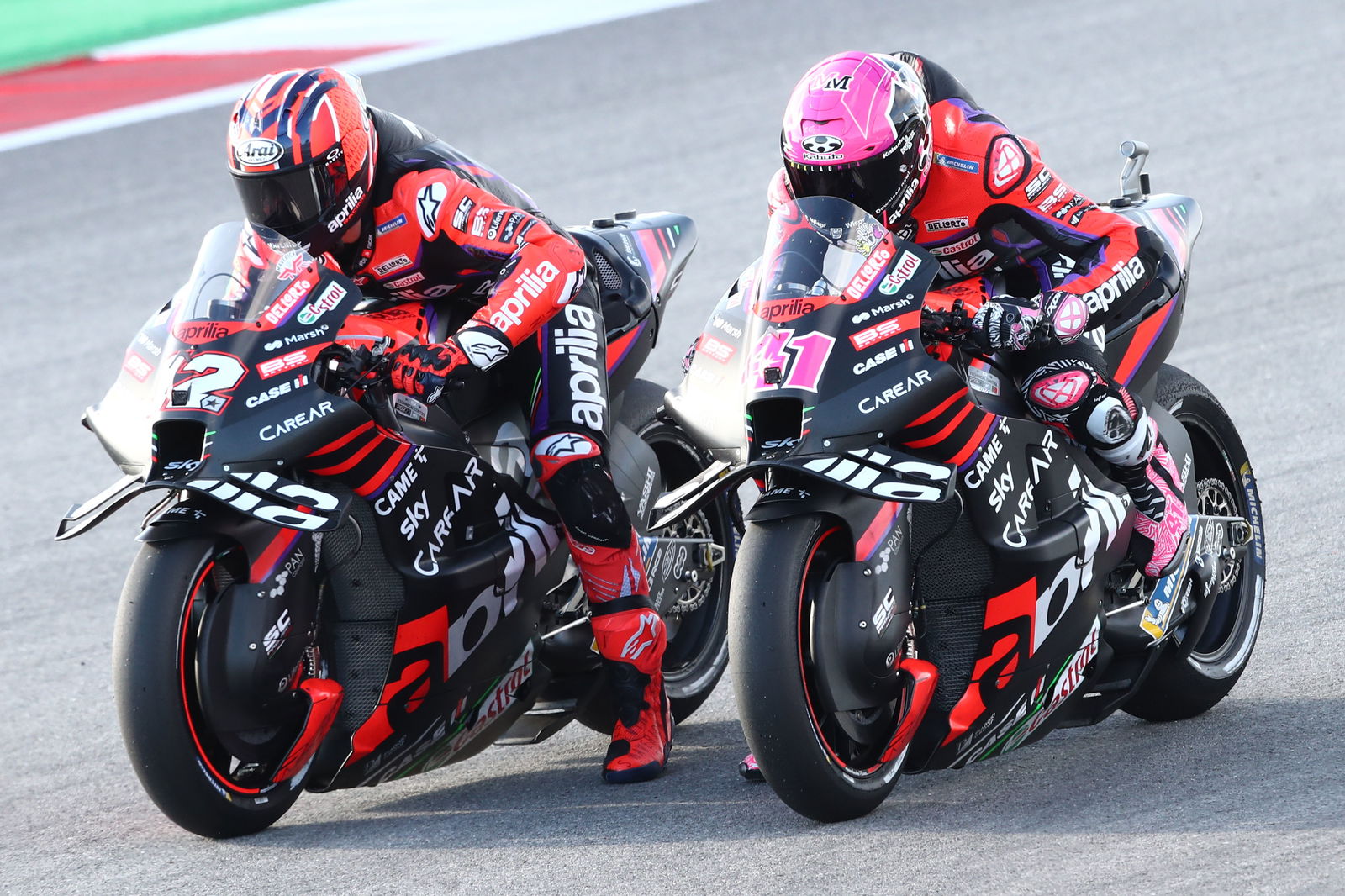
Currently, Aprilia’s four riders - Maverick Vinales, Aleix Espargaro, Miguel Oliveira, and Raul Fernandez - are protected by two leather suit manufacturers. For Oliveira and Espargaro, this is Ixon; and for Fernandez and Vinales, it is Alpinestars.
In the Motocross World Championship, MXGP - as well as in the 250-class of AMA professional dirt bike racing (Pro Motocross and Supercross) - it is the standard for teams to decide which gear their riders wear. The Red Bull KTM Factory Racing team, for example, has a deal with Alpinestars to provide jerseys, pants, and gloves, while Airoh provides the helmets.
In MXGP, this is of course not for engineering reasons but for financial and safety purposes. In MotoGP, a similar situation could arise for engineering purposes in addition to money and safety.
Following this path, MotoGP could see manufacturers potentially working with specific leathers manufacturers to create race suits which are specifically tailored to their motorcycles’ aerodynamics, and choosing riders on a similar basis.
At the moment, that is a long way off, but it could be in the future of MotoGP should Aprilia’s plastic panel experiment work successfully.
